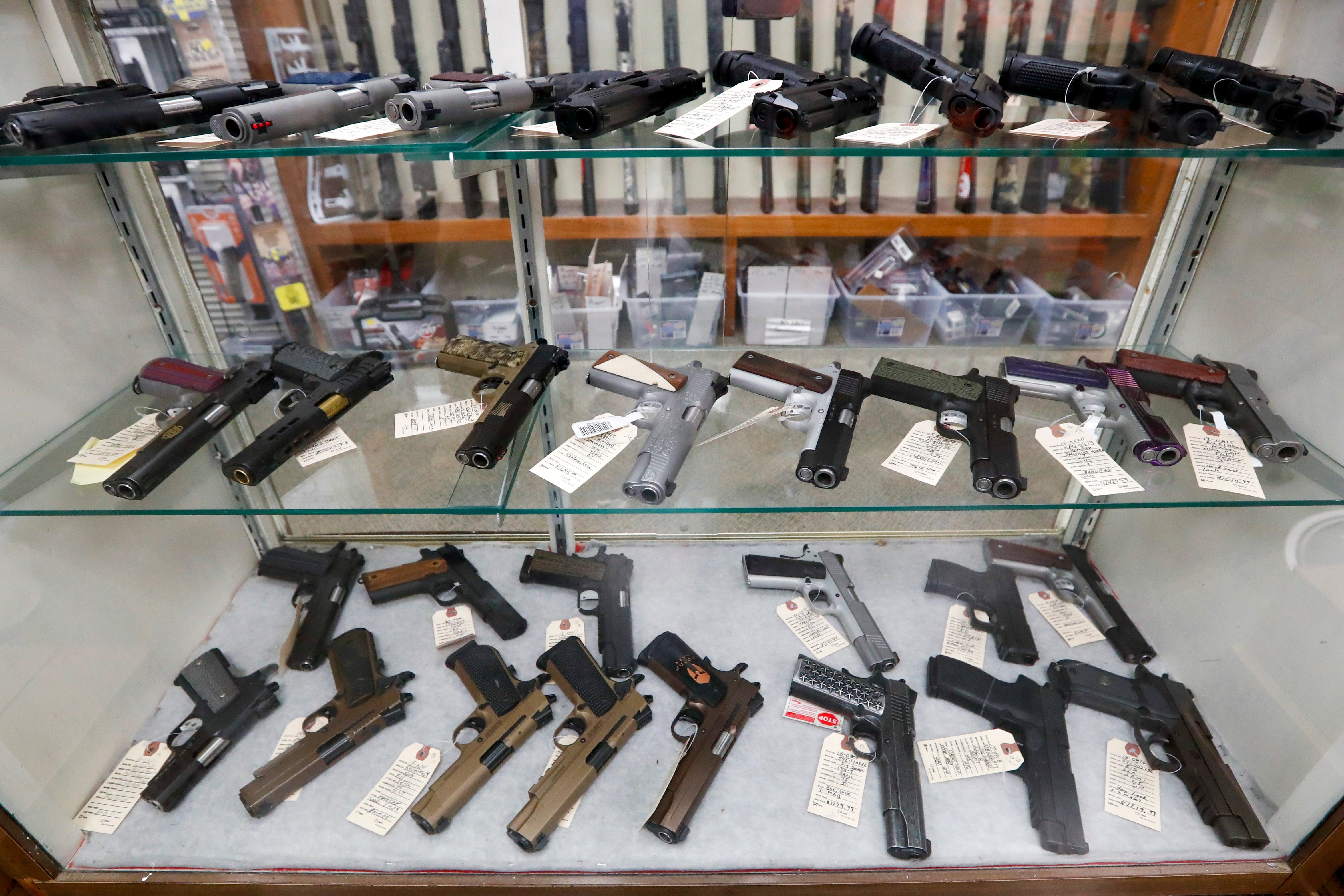Appeals court casts doubt on Biden administration rule to curb use of handgun stabilizing braces
A federal appeals court says a Biden administration rule aimed at curbing the use of stabilizing braces on handguns is unlikely to survive a legal challenge

A Biden administration rule requiring registration of stabilizing braces on handguns is unlikely to survive a legal challenge, a federal appeals court panel said Tuesday as it extended an order allowing a gun dealer and others challenging the regulation to keep owning, buying and selling the devices without registering them.
The ruling from the 5th U.S. Circuit Court of Appeals in New Orleans sends the case back to a federal judge in Texas who will consider whether to block enforcement nationwide.
Stabilizing braces attach to the back of a handgun, lengthening it while strapping to the arm. Advocates say the attachments make handguns safer and more accurate. Gun safety groups say they can be used to, in effect, lengthen a concealable handgun, making it more lethal. They point to mass shootings in which such braces were used.
While gun control advocates back the registration requirement as a needed curb on use of the braces, two Texas gun owners, a gun rights group and a gun dealer filed a lawsuit challenging the law.
The Texas-based federal judge presiding in the case refused to block the rule, which required registration of the devices and payment of a fee. But in May, the 5th U.S. Circuit Court of Appeals issued a temporary block of the rule as it applied to the plaintiffs, their customers and members.
Three 5th Circuit judges heard arguments in June. On Tuesday, the panel voted 2-1 to extend the block on enforcement for 60 days and send the case back to U.S. District Judge Reed O'Connor in Texas. The majority said the challengers were likely to succeed with their argument that the administration failed to comply with the federal Administrative Procedure Act in adopting the rule. It said O'Connor should review that aspect of his original ruling, other issues brought up in the challenge and the scope of any remedies — including whether the block on enforcement should apply nationwide.
“There is a need for consistent application of the law, and this court may not have all the required facts," Judge Jerry Smith wrote, noting that multiple other courts have issued orders against the federal registration rule since May and that it is uncertain how many people are now covered by such rulings.
The regulation, which went into effect June 1, was one of several steps President Joe Biden first announced in 2021 after a man using a stabilizing brace killed 10 people at a grocery store in Boulder, Colorado. A stabilizing brace was also used in a shooting in Dayton, Ohio, that left nine people dead in 2019 and in a school shooting that killed six in Nashville, Tennessee.
Smith, who was nominated to the appeals court by former President Ronald Reagan, was joined in Tuesday's ruling by Judge Don Willett, nominated by former President Donald Trump. Judge Stephen Higginson, nominated by former President Barack Obama, dissented, saying O'Connor, nominated to the federal bench by former President George W. Bush, was correct in holding that the government had met the requirements of the Administrative Procedure Act.
Bookmark popover
Removed from bookmarks